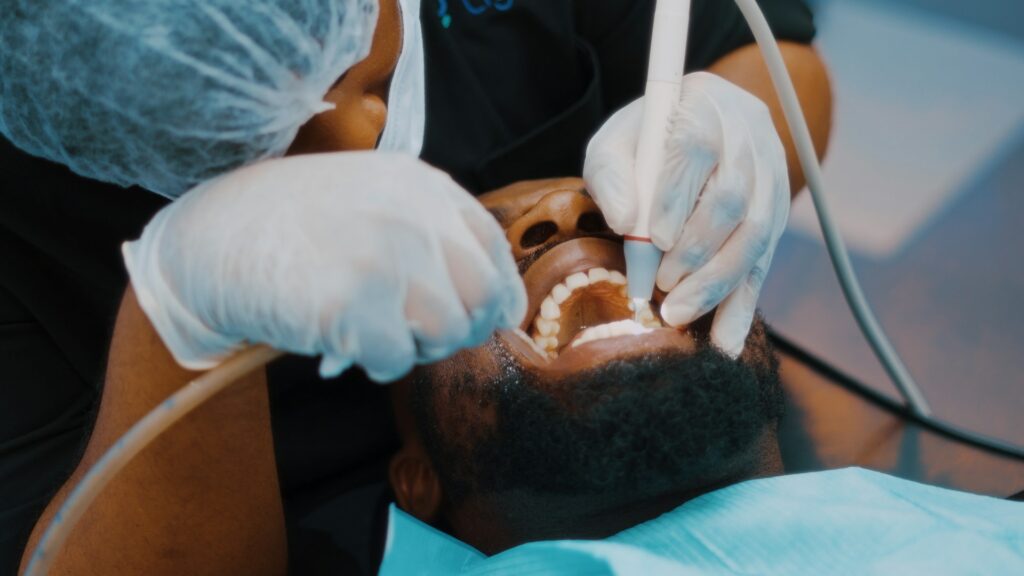The Foundation of Oral Health: Why It Matters
Grasping the importance of oral health is a critical component of a comprehensive wellness strategy. The condition of one’s mouth often mirrors the health of the body as a whole. Many aren’t aware that issues in the mouth can affect the rest of the body. Diseases like endocarditis or cardiovascular disease may be linked to oral health problems. Initiatives across the dental industry, including services providing dental implants Plainview NY, often underscore the interconnection between oral health and the body’s well-being and emphasize the role of oral hygiene in preventing and managing broader health issues.
Daily Oral Hygiene: Best Practices
Setting up a rigid oral hygiene routine is crucial in maintaining dental health. Regular brushing and fluoride toothpaste are vital in removing dental plaque — the primary culprit in tooth decay and gum disease. Conversely, flossing is essential to eliminating food particles and plaque from between the teeth that a brush can’t reach. Adding a mouthwash that helps kill bacteria can also contribute to a rigorous oral health regimen. Investing time in finding the proper oral care products and mastering the technique can have long-lasting benefits on one’s dental health.
The Role of Diet in Maintaining Healthy Teeth and Gums
Your diet has a significant impact on oral health. Consuming various nutrient-rich foods from all the food groups promotes strong teeth and healthy gums. Your mouth, the entry point to your digestive and respiratory systems, benefits considerably when you prioritize nutrition. Calcium-fortified juices, milk, and other dairy products, which strengthen bones and teeth, can minimize the risk of tooth decay. At the same time, crunchy fruits and vegetables have a natural cleaning effect on the teeth. Meanwhile, foods high in sugar and carbohydrates contribute to the formation of plaque acids that can erode tooth enamel, emphasizing the need for a balanced, less cariogenic diet.
Understanding Common Dental Problems and Prevention
Prevalent dental problems range from tooth decay, often felt as pain or sensitivity, to gum disease, leading to bleeding or swollen gums. Bad breath, or halitosis, may also indicate an underlying oral health problem. Such issues are preventable with good oral hygiene, and non-surgical treatments like scaling and root planing can help in cases of gum disease. Tooth decay, however, usually requires fillings to restore the damaged teeth. Understanding these conditions and their preventative measures can significantly enhance oral health outcomes.
Professional Dental Care: What to Expect During a Visit
A dental checkup is more than just having your teeth cleaned. It is a crucial opportunity for dentists to check for problems that might not be seen or felt, look for cavities or any other signs of tooth decay, diagnose periodontal (gum) disease, demonstrate proper cleaning techniques, and perform a thorough cleaning, which includes polishing and perhaps fluoride treatment. Regular dental visits are essential as dentists can help spot potential problems and offer treatment solutions early on. The recommended frequency of these visits can vary from person to person, and it’s best to consult with your dentist for a tailored schedule.
Advancements in Dental Health: Tools and Technologies
The landscape of dental care is ever-changing, with innovations designed to make treatments more efficient and less painful. Technologies like 3D printing for dental restorations and laser treatment for gum disease and tooth decay are minimally invasive and can improve recovery time. Teledentistry has also made dental care more accessible, allowing for remote diagnosis and consultation, which is particularly beneficial in rural or underserved communities. Keeping abreast of these advancements can offer patients more effective and tailored dental health solutions.
Global Oral Health Initiatives and Awareness Campaigns
Oral health is an integral part of global health and well-being. Organizations like the World Health Organization and individual countries’ health departments initiate numerous global health campaigns to raise awareness about the importance of oral health. World Oral Health Day, for example, serves as a platform to highlight issues related to oral health and the cost-effective measures to prevent oral diseases globally. These efforts aim to bridge the gap and provide support in dental health education alongside improving access to dental care worldwide.

